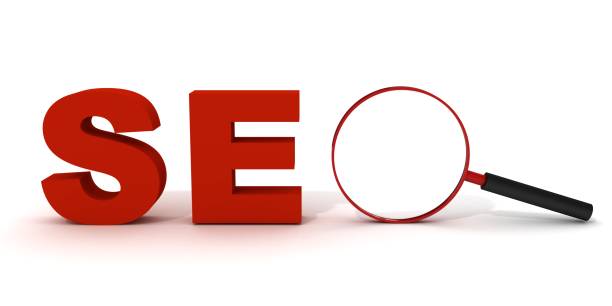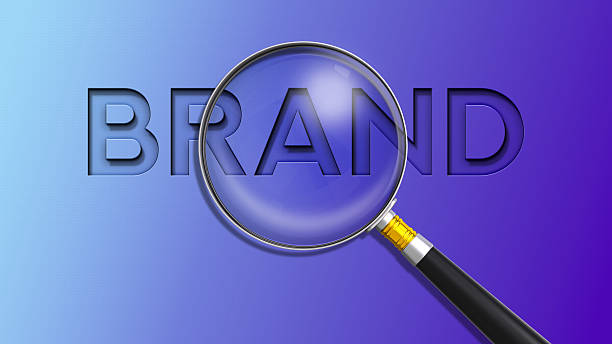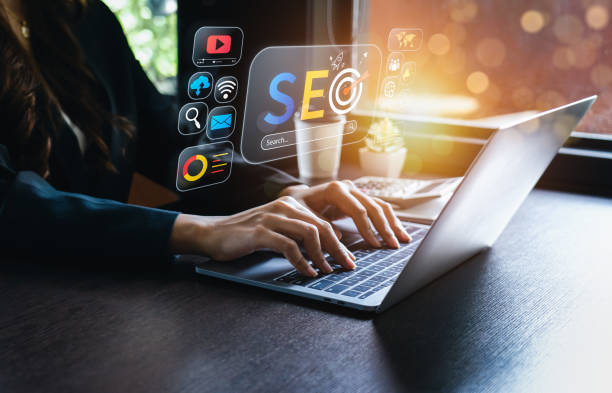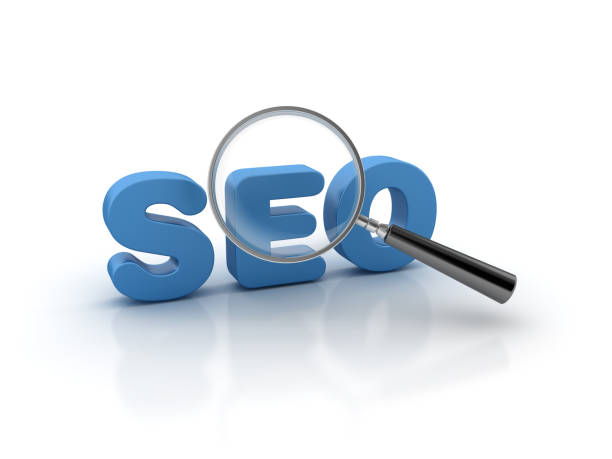What is On-Page SEO and Why Does It Matter?

What is On-Page SEO and Why Does It Matter?
#On-Page_SEO refers to a set of actions and techniques performed within your website to improve its ranking and position in search engine results like Google.
These actions include optimizing content, website structure, HTML tags, page loading speed, and more.
The importance of On-Page SEO lies in the fact that it helps search engines better understand the content of your website and associate it with users’ search queries.
In other words, On-Page SEO helps you make your website more attractive and understandable to search engines, which in turn leads to increased organic traffic and improved search engine rankings.
In fact, On-Page SEO is a bridge between your content and the understanding of search engines.
Strong On-Page SEO is the foundation for success in SEO, and without it, other efforts in the field of Off-Page SEO alone cannot achieve the desired results.
Is your company’s website performing as well as your brand deserves? In today’s competitive world, your website is your most important online tool. Resaweb, a specialist in designing professional corporate websites, helps you to:
✅ Attract customers’ credibility and trust
✅ Convert website visitors into customers
⚡ Get a free consultation!
Keyword Research: The Cornerstone of On-Page SEO

Keyword Research: The Cornerstone of On-Page SEO
Keyword research is one of the most important steps in the #On-Page_SEO process.
This process helps you understand what words and phrases users use in search engines to find information related to your business.
By identifying these keywords, you can optimize your website content based on them to achieve a higher ranking in search results.
There are various tools for keyword research, such as Ahrefs, SEMrush, and Google Keyword Planner.
When researching keywords, pay attention to factors such as search volume (the number of times a keyword is searched within a specific time period), competition (the difficulty of ranking for a keyword), and relevance (the relevance of the keyword to your website content).
After identifying the appropriate keywords, use them naturally in titles, meta descriptions, the main text of the content, and image alt tags.
Remember that the main purpose of using keywords is to provide valuable and relevant content to users, not just to deceive search engines.
On-Page SEO starts with proper keyword research and helps your website succeed in search results.
Keep in mind that keyword research is an ongoing process and should be repeated regularly to keep pace with changes in user search behavior.
Take On-Page SEO seriously.
Content Optimization: The Beating Heart of On-Page SEO

Content Optimization: The Beating Heart of On-Page SEO
Content is king! This famous phrase in the world of SEO shows the unparalleled importance of content in #ranking websites.
Content optimization involves creating high-quality, valuable, relevant, and engaging content for users and search engines.
To optimize content, consider the following:
- Titles and Subheadings Use attractive and relevant titles and subheadings with keywords so that users and search engines can quickly understand what the page content is about.
- Main Text The main text of the content should be fluent, readable, and full of useful information.
Use keywords naturally and in the right place. - Images and Videos Use high-quality images and videos that are relevant to the content.
Fill the alt tags of the images with appropriate descriptions including keywords. - Internal Linking Use internal linking to link different pages of your website.
This helps search engines better understand your website structure and directs users to relevant content. - Readability Make sure your content is easily readable.
Use short paragraphs, simple sentences, and a suitable font.
On-Page SEO and the production of quality content are closely related.
On-Page SEO is a key factor in attracting the audience.
On-Page SEO helps you get more traffic from search engines.
| SEO Element | Description |
|---|---|
| Page Title | Should be attractive, relevant, and include the main keyword. |
| Meta Description | A summary of the page content that is displayed in search results. |
| H1-H6 Tags | Used to structure content and highlight important points. |
| Image Alt Tag | A description for images that helps search engines understand the image. |
Website Structure Optimization: Easy Navigation for Users and Search Engines

Website Structure Optimization Easy Navigation for Users and Search Engines
Your website structure should be such that users and search engines can easily navigate it and find the information they need.
A good website structure not only improves the user experience but also helps search engines to better index the pages of your website and assign them a higher ranking.
Some important tips in optimizing the website structure include:
- Navigation Menu The navigation menu should be clear, concise, and include the main categories of your website.
- Internal Linking Use internal linking to link different pages of your website.
- Sitemap Create an XML sitemap and register it in Google Search Console.
The sitemap helps search engines find and index all the pages of your website. - URLs Use short, descriptive URLs that include keywords.
- Responsive Your website should be responsive and display correctly on different devices (computer, tablet, mobile).
Optimizing your website structure is a vital aspect of On-Page SEO and helps you attract more organic traffic to your website.
On-Page SEO is a complex process that requires attention to detail.
Tired of losing customers due to a poorly designed online store site? With Resaweb, solve this problem forever!
✅ Increase sales and visitor-to-customer conversion rates
✅ Smooth and attractive user experience for your customers⚡ Get a Free Consultation
Optimizing HTML Tags: A Vital Role in Understanding Content by Search Engines

Optimizing HTML Tags A Vital Role in Understanding Content by Search Engines
HTML tags play an important role in search engines understanding the content of your website.
By using these tags correctly, you can help search engines better understand the main topic of your website pages and properly rank them in search results.
Some of the most important HTML tags that need to be optimized include:
- Title Tag The title tag is one of the most important ranking factors in On-Page SEO.
This tag is displayed at the top of the browser and in search results.
The title tag should be attractive, relevant, and include the main keyword of the page. - Meta Description Tag The meta description tag is a summary of the page content that is displayed below the page title in search results.
This tag should be attractive and persuasive to encourage users to click on your link. - Heading Tags (H1-H6 Tags) Heading tags are used to structure content and highlight important points.
The H1 tag should be the main title of the page and include the main keyword. - Image Alt Tag Image alt tags are used to describe images to search engines.
This tag helps search engines understand the image and rank it in image search results.
Optimizing HTML tags is an essential step in On-Page SEO and helps you improve your website’s ranking in search results.
Optimize your website by optimizing HTML tags in On-Page SEO.
Optimizing Page Load Speed: A Pleasant Experience for Users and Search Engines

Optimizing Page Load Speed A Pleasant Experience for Users and Search Engines
Page load speed is one of the most important ranking factors in On-Page SEO.
Users expect website pages to load quickly, and if a page takes too long to load, they are likely to leave it.
In addition, search engines also consider page load speed as a ranking factor, and websites with high load speeds will rank better in search results.
Some ways to optimize page load speed include:
- Optimizing Images Save images in the appropriate format and compress them with image compression tools.
- Enabling Browser Caching By enabling browser caching, users’ browsers can store static files of your website (such as images, CSS files, and JavaScript files) in their memory and load them from memory on subsequent visits, which increases page load speed.
- Reducing CSS and JavaScript File Size Minify CSS and JavaScript files with minifier tools.
- Using a CDN Use a Content Delivery Network (CDN) to host your website’s static files.
- Choosing a Suitable Hosting Use high-quality, high-speed hosting.
Optimizing page load speed is a valuable investment in On-Page SEO and helps you improve the user experience and increase your website’s ranking in search results.
On-Page SEO is not limited to content optimization alone.
Mobile SEO: Adapting to the Mobile-Centric World

Mobile SEO Adapting to the Mobile-Centric World
Given the increasing use of mobile devices for searching the Internet, Mobile SEO has become a critical aspect of On-Page SEO.
Your website must be optimized for mobile devices so that users can easily navigate it and find the information they need.
Some important points in Mobile SEO include:
- Responsive Design Your website should have a responsive design and display correctly on different mobile screen sizes.
- Page Load Speed Page load speed on mobile devices should be high.
- Touch Capability Website elements (such as buttons and links) should be large enough for users to easily touch them.
- Avoiding Pop-ups Avoid displaying pop-ups on mobile devices.
- Using a Suitable Font Use a font that is easy to read on mobile devices.
Mobile SEO is an important factor in ranking websites in Google search results.
By optimizing your website for mobile devices, you can attract more organic traffic to your website and improve your ranking in search results.
Take the path to success with the right On-Page SEO.
| Mobile SEO Element | Description |
|---|---|
| Responsive Design | Your website should automatically adapt to the screen size of different devices. |
| High Loading Speed | Web pages should load quickly on mobile devices. |
| Easy to Use | Navigation and interaction with website elements should be easy on mobile devices. |
| No Flash | It is best to avoid using Flash on your website. |
Website Security (HTTPS): A Necessity for Gaining the Trust of Users and Search Engines

Website Security (HTTPS) A Necessity for Gaining the Trust of Users and Search Engines
Website security is an important factor in On-Page SEO.
Google prioritizes websites that use the HTTPS protocol and ranks them higher in search results.
Using HTTPS not only increases the security of your website, but also builds user trust and encourages them to visit your website.
To enable HTTPS, you need to obtain an SSL certificate.
On-Page SEO helps your website’s security.
Did you know that a weak corporate site misses many opportunities every day? Solve this problem forever with professional corporate website design by Resaweb!
✅ Create a powerful and reliable image of your brand
✅ Targeted attraction of new customers and increased sales
⚡ [Get a free website design consultation]
Structured Data (Schema Markup): Helping Search Engines Understand Content Better

Structured Data (Schema Markup) Helping Search Engines Understand Content Better
Structured data helps search engines better understand the content of your website and properly display it in search results.
By using structured data, you can provide information such as business name, address, phone number, business hours, prices, and ratings to search engines.
This information can be displayed in Rich Snippets in search results and increase your website’s click-through rate (CTR).
On-Page SEO is an ongoing process and needs to be updated.
On-Page SEO Tools: Continuous Monitoring and Improvement

On-Page SEO Tools Continuous Monitoring and Improvement
You can use various tools to continuously monitor and improve your website’s On-Page SEO.
Some of these tools include:
- Google Search Console This free tool from Google helps you monitor your website’s performance in search results, identify technical problems on your website, and submit your sitemap to Google.
- Google Analytics This free tool from Google helps you analyze your website traffic, monitor user behavior on your website, and evaluate the performance of your marketing campaigns.
- Ahrefs Ahrefs is a paid tool that helps you identify keywords used by competitors, monitor your website’s backlinks, and identify technical problems on your website.
- SEMrush SEMrush is a paid tool that helps you monitor your website’s ranking for different keywords, identify new keywords, and analyze competitor performance.
By using these tools and analyzing the data, you can identify the weaknesses of your website’s On-Page SEO and take action to improve them.
With On-Page SEO and the use of professional tools, you can see your website on the first page of Google.
FAQ
| Question | Answer |
|---|---|
| What is On-page SEO? | On-page SEO refers to a set of actions taken within your website to improve its ranking in search engine results. This includes optimizing content, site structure, and HTML code. |
| Why is on-page SEO important? | On-page SEO helps search engines understand your page’s content and determine whether your content is relevant to searchers. It is the foundation of any successful SEO strategy. |
| What are the key elements of on-page SEO? | Page title (Title Tag), meta description, use of keywords, image optimization, heading structure (H1, H2, …), internal linking, and content quality are key elements. |
| How do we optimize the page title (Title Tag)? | The page title should include the main keyword, be attractive and enticing to click, and its length should be between 50 and 60 characters (or a suitable pixel) to be fully displayed in search results. |
| What role does the meta description play in on-page SEO? | The meta description is a summary of the page’s content that is displayed below the title in search results. Although it does not directly affect ranking, it helps SEO by increasing the click-through rate (CTR). |
| What is the importance of using a heading structure (H1, H2, H3) in on-page SEO? | Headings structure the page’s content and make it easier to read. H1 is usually the main title of the page and should include the keyword. H2 and H3 are used to organize sub-sections and help search engines understand the hierarchy of content. |
| How do we effectively use keywords in content? | Keywords should be used naturally and logically throughout the content, including the introduction, body, and conclusion. Avoid over-filling keywords (Keyword Stuffing). |
| What are the steps involved in optimizing images for on-page SEO? | Includes compressing images to reduce volume, using descriptive file names, adding suitable alternate text (Alt Text), and optimizing the image title and description. Alt Text is critical for accessibility and helping search engines understand the content of the image. |
| What is Internal Linking and what are its benefits? | Internal linking means creating a link from one page on your website to another page on the same website. This helps users easily navigate your site, distributes page credibility across the site, and helps search engines better understand your site’s structure. |
| What is the importance of content quality in on-page SEO? | High-quality, accurate, comprehensive, and valuable content for users is the cornerstone of on-page SEO. Search engines prefer content that meets user needs. Quality content leads to more user time on site (Dwell Time) and reduces bounce rate (Bounce Rate), which are positive SEO signals. |
And other services of Rasa Web Advertising Agency in the field of advertising
Intelligent Conversion Rate Optimization: An exclusive service for online growth based on the use of real data.
Intelligent Custom Software: Professional optimization to increase site visits using Google Ads management.
Intelligent Digital Advertising: An innovative service to increase click-through rates by optimizing key pages.
Intelligent UI/UX: A creative platform to improve customer behavior analysis with attractive user interface design.
Intelligent Website Development: An innovative service to increase sales through marketing automation.
And more than a hundred other services in the field of internet advertising, advertising consulting, and organizational solutions
Internet Advertising | Advertising Strategy | Advertorial Report
Sources
The Complete Guide to On-Page SEO from SEOPressor
,What is On-Page SEO and How Does it Work? from HubSpot
,On-Page SEO Guide in 2024 from Semrush
,On-Page SEO: A Practical Guide from Ahrefs
? Build the future of your online business with Rasaweb Digital Marketing Agency. We help you on the path to growth and success by providing specialized services including SEO-optimized website design, search engine optimization (SEO), and professional social media management. Contact us today and transform your business!
📍 Tehran, Mirdamad Street, next to the Central Bank, South Kazerun Alley, Ramin Alley No. 6




